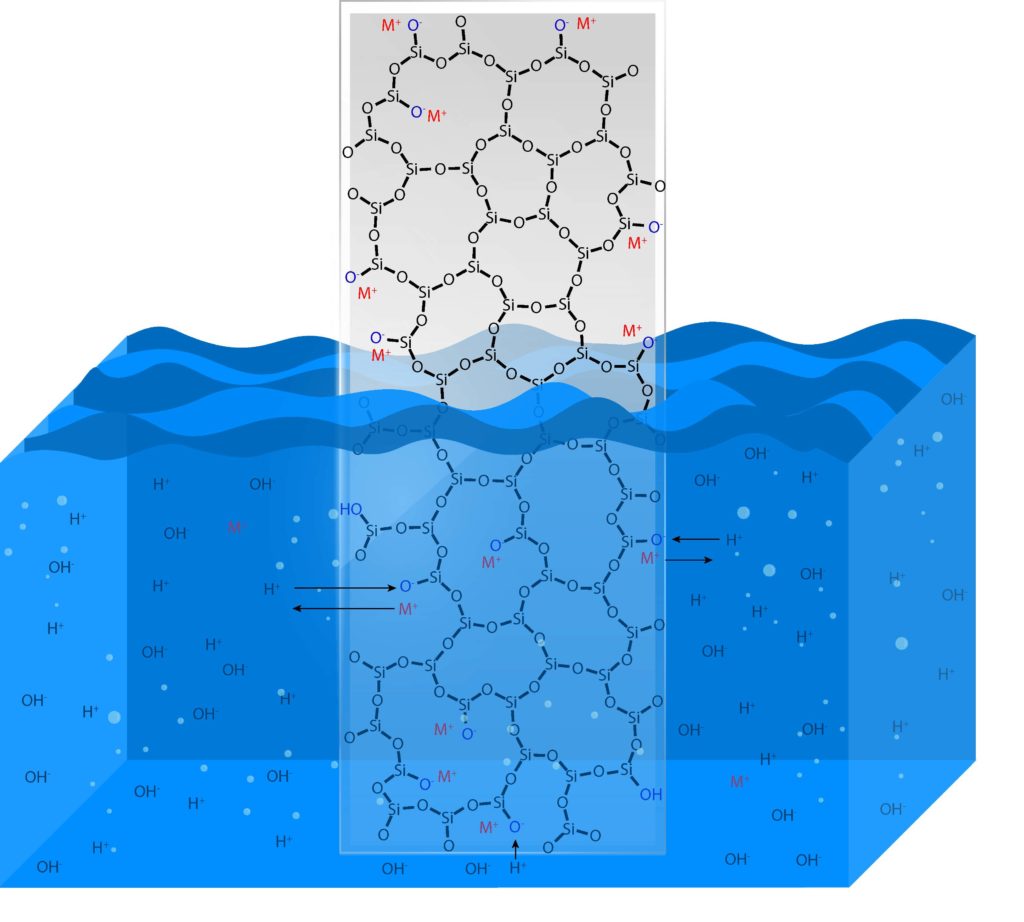While we usually think of inorganic glasses as inert materials, they do usually react with water, albeit slowly only. In most cases, this corrosion is an undesired process and significantly deteriorates the glass surface and reduces glass quality. There are, however, special inorganic glasses which are successfully used as biomaterials in the clinic to help heal bone defects, and for these glasses the reaction with water is not only beneficial but even a key step in the bone regeneration process. These glasses are therefore designed to undergo fast reactions with aqueous solutions such as body fluids, release ions into solution and even form surface layers helping bone cells to adhere and form bone. Their fast reaction with water makes this type of silicate glasses interesting for several reasons. On the one hand, it is fascinating to see how a material with a composition not unlike to that of window glass can help healing bones to improve the lives of patients. But on the other hand, these glasses allow us to get insight into many steps of glass corrosion in relatively short time periods.
This presentation therefore introduces silicate glasses used as biomaterials and gives examples of what we can learn from them about the corrosion reaction between silicate glasses and water.
Abstract
Glass as a Biomaterial – Or: Why Corrosion Can Be a Good Thing
Glass as a Biomaterial – Or: Why Corrosion Can Be a Good Thing
Delia S. Brauer 1
1 Otto Schott Institute of Materials Research, Friedrich Schiller University Jena, Fraunhoferstr. 6, 07743 Jena, Germany

- Type: Guest oral presentation
- Related categories: Glass alteration
